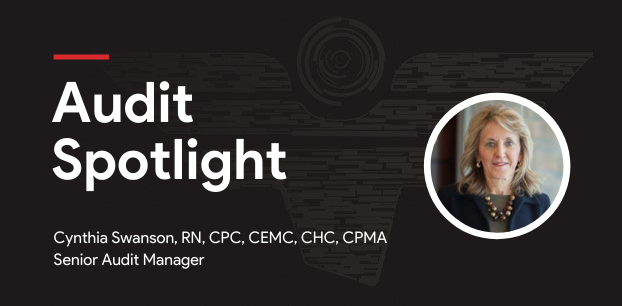
Audit of surgery performed in a ambulatory surgery center results in major savings
Background
ClaimDOC’ s comprehensive line-by-line auditing of claims uncovers errors that basic claim repricing and auto-adjudication does not catch, leading to greater savings to health plans and beneficiaries. Our audit team analyzes all types of healthcare claims for a variety of potential concerns including excessive usual and customary charges, duplication of claims, correct coding initiative edits, unbundling of services and others. Our claims review is not intended to impact care decisions or medical practice. In this Claims Audit Spotlight, we focus on Ambulatory Surgery Center (ASC) coding and billing. ASCs differ from hospital facility and physician reporting requirements, as does the methodology of reimbursement to ASCs.ASCs are defined by Medicare as a distinct entity, operating exclusively to furnish outpatient surgical services. ASCs generally do not provide office visits, laboratory services, diagnostic tests, etc. Medicare and many commercial plans maintain an approved list of surgical procedures which may be performed in an ASC setting based on specific criteria. ASCs are designated as non-hospital facilities. Generally, procedures are performed for patients expected to need less than 24 hours of care. Pricing and payments to ASCs are considered “packaged” meaning related services are bundled together and reimbursement is based on the surgical procedure code(s) reported/billed. Examples of “packaged” ASC items include medical/surgical supplies/implants, not on pass-through status, appliances, equipment, administrative/record keeping/housekeeping services, surgical dressings, drugs not on pass-through status, splints, casts, and others. These items provided in the ASC are usually not separately charged and are considered part and partial to the ASC procedure(s) performed.
Case Scenario
The member received a spinal neurostimulator pulse generator during surgery performed in an ASC located in Chicago, IL. The primary ICD-10-CM diagnosis code reported on the UB-04 claim or electronic equivalent was T85.193A, defined as mechanical complications of the implanted electric neurostimulator.
The ASC submitted their claim to insurance with total charges of $110,905. In this case, the surgical procedure code reported/billed on the claim was CPT code 63685, defined as, insertion or replacement of spinal neurostimulator pulse generator or receiver for a charge of $65,905, and HCPCS code C1820 defined as, generator, neurostimulator (implantable), with a rechargeable battery and charging system for a charge of $45,000.
In most cases, ASC’s should not report separate line items, HCPCS Level II codes, or any other charges for procedures, services, drugs, devices, or supplies that are considered “packaged” into the payment allowance for covered surgical procedures performed in the ASC. The allowance for the surgical procedure itself includes these other services or items.
The ASC reported the implant code C8120 as a separate line item on the claim, although the implant, in this case, is considered “packaged” and is not separately reimbursed in addition to the surgery procedure code billed.
Below is an overview of the ASC facility charges billed and related ClaimDOC pricing and savings:
- Total ASC billed charges: $110,905
- ClaimDOC Pricing: $29,930.06 – (Based on Medicare 2020 ASC pricing for CPT code 63685 with markup)
- Plan Savings: $80,974.94
- Percentage of Savings: 73%
The Takeaway
Over-inflated ASC charges were observed on the UB-04 claim form/electronic equivalent. While ASCs may charge any amount they choose for the procedure(s) performed, unbundling of “packaged” services and/or egregious fees can complicate matters for members to understand their bills and payments, impact the collection of patient balances, build a reputation of ASCs unbundling services and/or charging high fees, create burdens for patients having no insurance and a host of others.
Our goal at ClaimDOC is to use benchmark charges and costs nationally to negotiate fair and ethical payments. Employers turn to us to seeking to establish fair reimbursement rates for their plans allowing them to save money and provide richer benefits to their employees. A win-win for everyone.